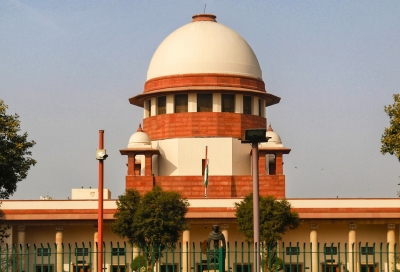New Delhi: The Supreme Court has quashed criminal proceedings initiated against a UP government official accused of torturing and abetting a senior clerk in the District Child Welfare Board to commit suicide.
An FIR was registered at Fatehgarh’s Kotwali police station for the offences punishable under Section 306 of the IPC and the SC/ST Act on the basis of the suicide note left behind by the deceased who ended his life by consuming a poisonous substance in his own house on October 3, 2002.
The appellant official contended in the apex court that allegations do not constitute the necessary ingredients of the offences alleged as the deceased was bothered by the pressure of working in two districts and took the extreme step of ending his life being unable to withstand the pressure.
In its verdict, a bench, headed by Justice B.R. Gavai said: “On a minute perusal of the suicide note, we do not find that the contents thereof indicate any act or omission on the part of the accused-appellant which could make him responsible for abetment as defined under Section 107 IPC.”
After minutely perusing the suicide note, the bench, also comprising Justice Sandeep Mehta, agreed that the deceased was frustrated on account of work pressure and was apprehensive of various random factors unconnected to his official duties.
However, such apprehensions expressed in the suicide note, by no stretch of the imagination, can be considered sufficient to attribute to the appellant, an act or omission constituting the elements of abetment to commit suicide, it added.
The apex court held that the necessary ingredients of the offence of abetment to commit suicide are not made out from the charge sheet and appellant’s prosecution under Section 306 IPC and Section 3(2)(v) of the SC/ST Act tantamounts to gross abuse of process to law.
It also said: “The prosecution of the appellant herein for the offence under Section 3(2)(v) of the SC/ST Act is ex facie illegal and unwarranted because it is nowhere the case of the prosecution in the entire charge sheet that the offence under IPC was committed by the appellant upon the deceased on the basis of his caste.”
It noted that the investigating agency, in the first instance, proposed a closure report in the matter after conducting a thorough investigation. Later, the investigation was reopened and a charge sheet came to be filed.
“In this background, we are of the opinion that there does not exist any justifiable ground so as to permit the prosecution of the appellant for the offences under Section 306 IPC and Section 3(2)(v) of the SC/ST Act,” the Supreme Court said.
Earlier, the Allahabad High Court had rejected the application filed under Section 482 of Court of Criminal Procedure (CrPC) seeking quashing of proceedings pending before the Farrukhabad’s Chief Judicial Magistrate.
–IANS


Comments are closed.